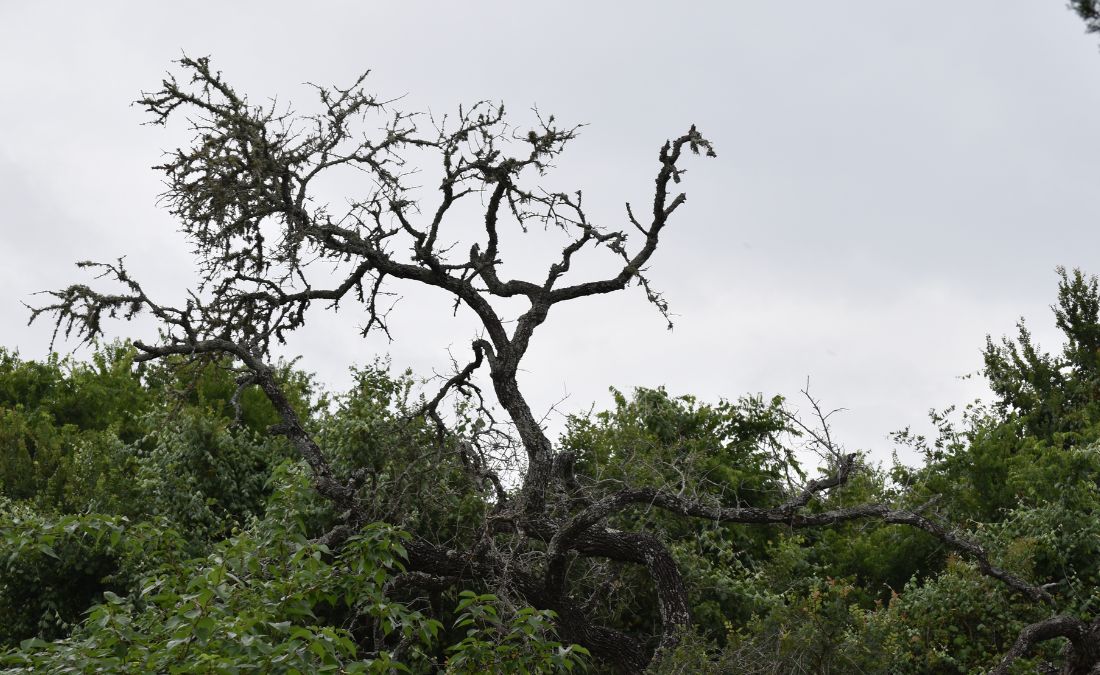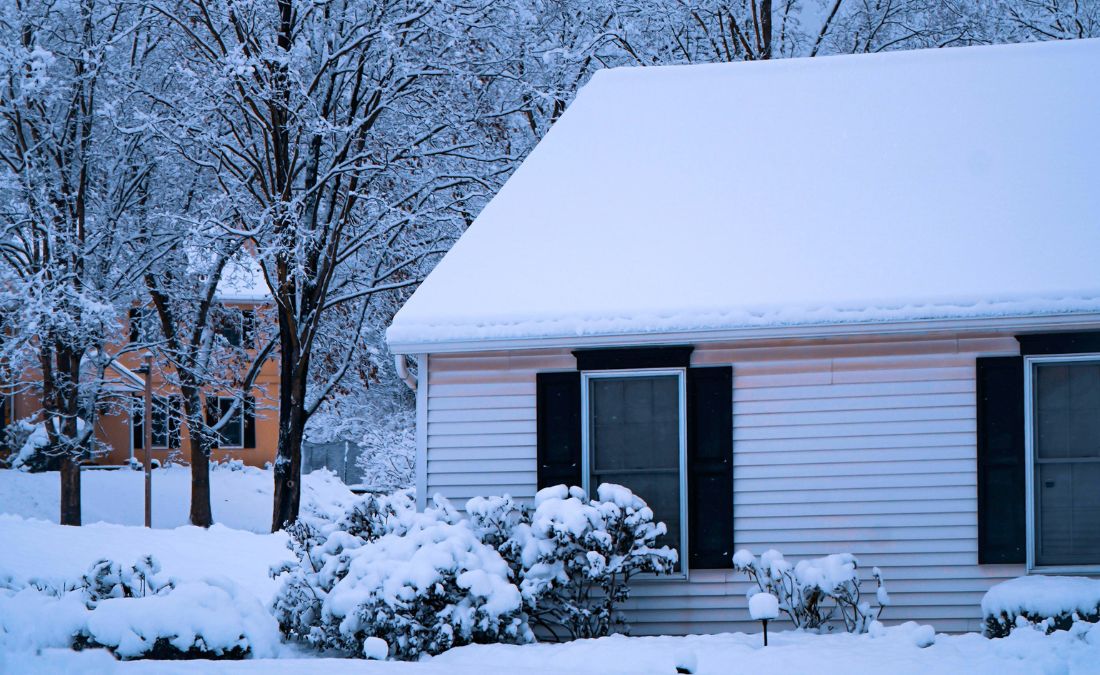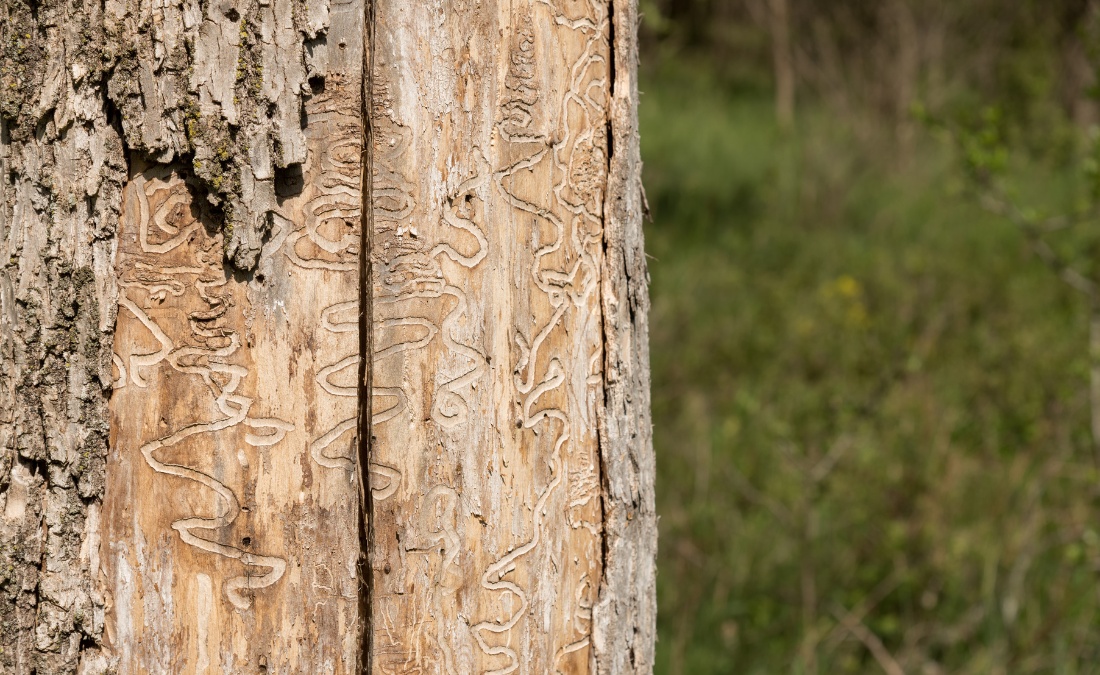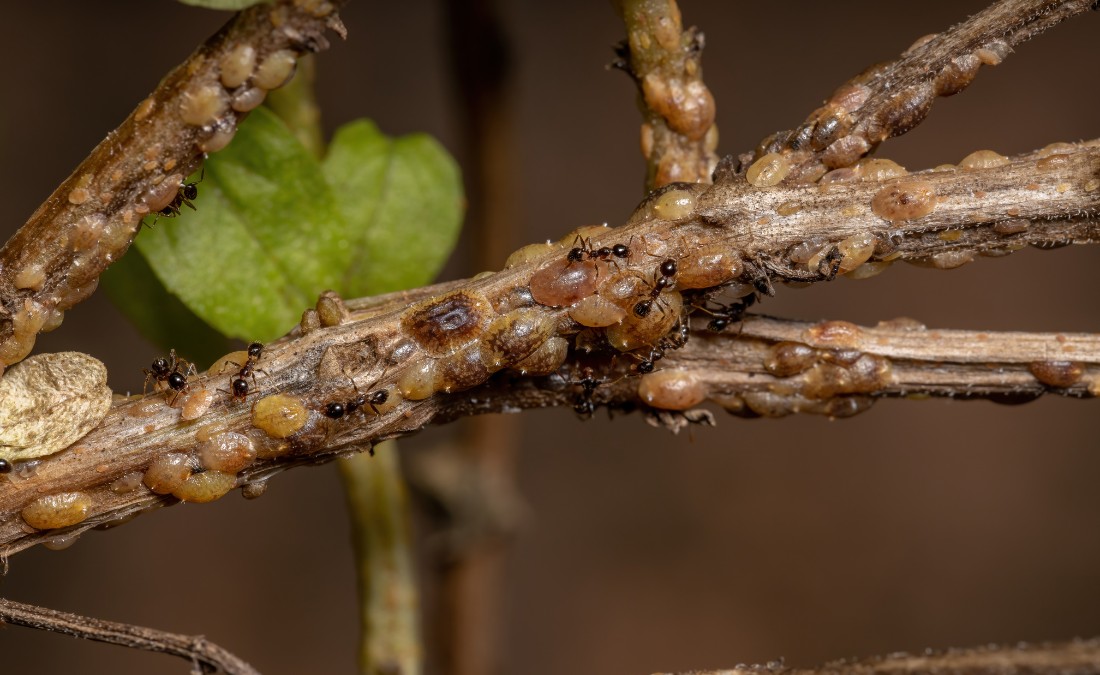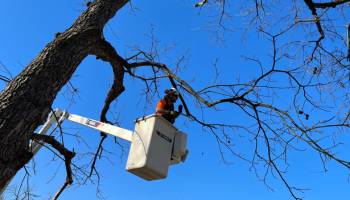What Arbor Masters Is Doing to Save the Bees
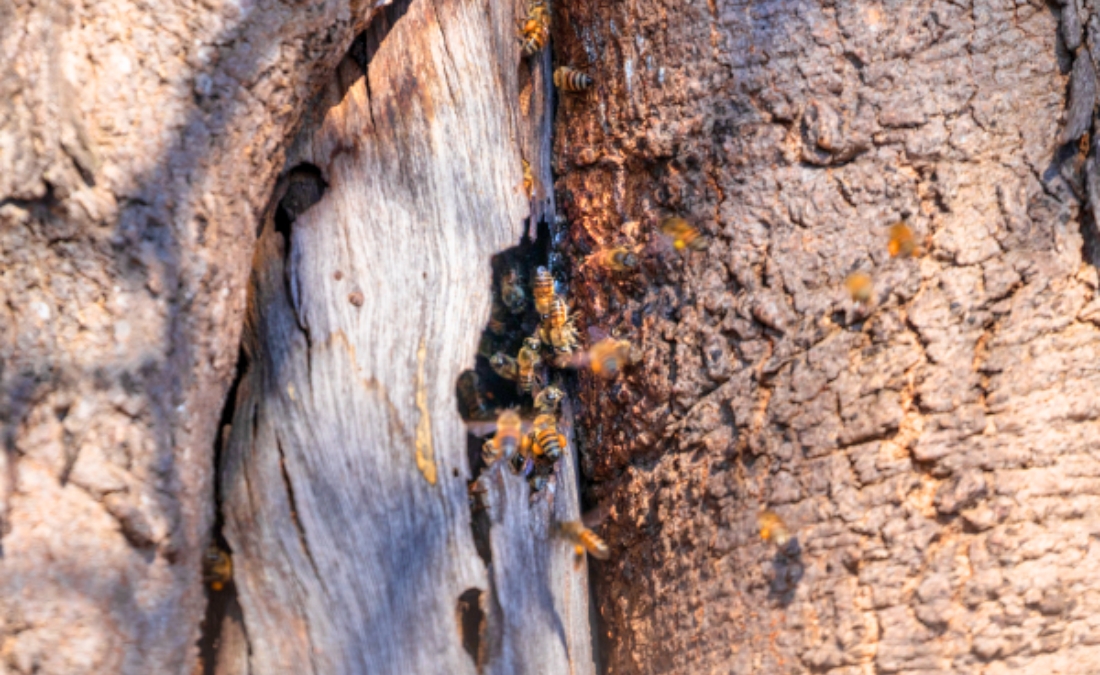
Find out what Arbor Masters is doing to save the bees – and why your choice of tree care company matters more than ever for pollinators and the planet.
Across the U.S., honeybee deaths have reached record levels, with beekeepers reporting the highest loss of colonies in years. This isn’t a one-time dip – it’s part of a long-term, deeply troubling trend that threatens not just bees, but the entire ecosystem they support.
This isn’t just a bee problem – it’s an environmental emergency. And at Arbor Masters, we take it seriously. As a tree care company committed to environmental stewardship, we’ve made it our mission to help save the bee population through smarter pest control, reduced-risk practices, and homeowner education.
Key Takeaways:
- Bee populations in the U.S. are declining at record rates, driven by habitat loss, climate change, pesticide use, and other harmful practices.
- Over-the-counter pesticides and broad-spectrum treatments are a major contributor to pollinator deaths – especially when applied incorrectly.
- Arbor Masters uses pollinator-safe, science-backed tree treatments that protect beneficial insects while still addressing harmful pests.
- Our Certified Arborists educate homeowners on the difference between pests and beneficial insects, helping reduce unnecessary chemical use and protect local ecosystems.
- Choosing a tree care company that puts the environment first is one way homeowners can support pollinator health – and Arbor Masters is proud to the lead the way in sustainable, bee-conscious tree care.
Why Is the Bee Population Declining?
Bee populations have been shrinking for years, and recent reports show the crisis is reaching dangerous new levels. While there isn’t a single cause behind the decline, researchers have identified several factors that continue to put pressure on pollinators across the country.
Habitat Loss
As cities expand and farmland replaces natural areas, bees are being forced out of their native habitats. With fewer safe places to build hives, many bees end up nesting in trees, sheds, or home exteriors – where they’re often destroyed out of fear.
Instead of calling a beekeeper to safely relocate the hive, many people unknowingly eliminate an entire colony. This loss of nesting sites, along with reduced access to diverse flowering plants, makes it harder for bees to survive.
Climate Change
Shifts in temperature, rainfall, and seasonal patterns are having a major impact on bees’ ability to forage and reproduce. Many flowers now bloom earlier or later than usual, which means bees may miss the window to collect the pollen and nectar they depend on. Late frosts, excessive heat, and weather extremes can also disrupt hive health and queen production – all critical for population stability.
Pesticide Use
Of all the threats bees face, pesticide, use is one of the most direct – and preventable. In particular, a class of chemicals known as neonicotinoids has been strongly linked to bee die-offs. These systemic insecticides are absorbed into a plant’s tissues and show up in its pollen and nectar, where bees ingest them while foraging. Neonics impair bees’ ability to navigate, reproduce, and communicate, leading to weakened hives and colony collapse.
Unfortunately, many of these products are sold over the counter and widely used in residential landscapes, often with little awareness of their ecological impact.
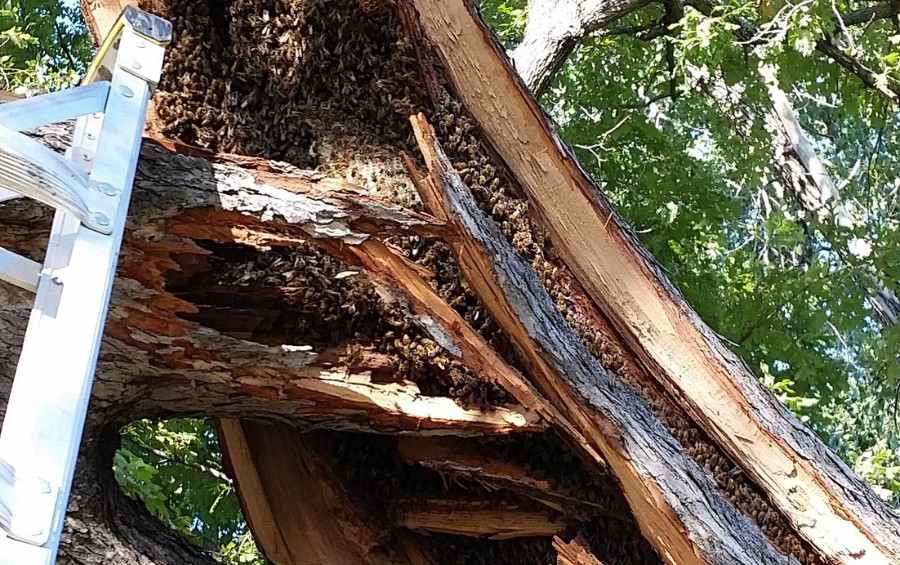
A fallen tree reveals a massive beehive hidden inside its hollow trunk.
How Arbor Masters Protects Bees While Caring for Trees
Arbor Masters takes a different path – one that balances effective pest control with long-term environmental responsibility.
We Use Reduced-Risk Pest Treatments
Our licensed arborists treat trees for invasive and damaging pests like Japanese beetles, bagworms, emerald ash borers, and more – but we do it using products and methods designed to minimize impact on pollinators.
That means using targeted treatments rather than blanket sprays, which helps limit environmental exposure. We also rely on systemic treatments that stay within the tree’s vascular system, so they don’t contaminate pollen or nectar.
We Save and Relocate Bee Hives
On occasion, our crews discover bee hives inside hollow trees that need to be removed. When that happens, we don’t treat the bees as a nuisance. We coordinate with local beekeepers to safely remove and relocate hives whenever possible.
While hive rescues aren’t the core of our business, we do take every opportunity to protect and preserve bees in the course of our work. It’s one of the many ways we demonstrate our commitment to responsible, eco-conscious tree care.
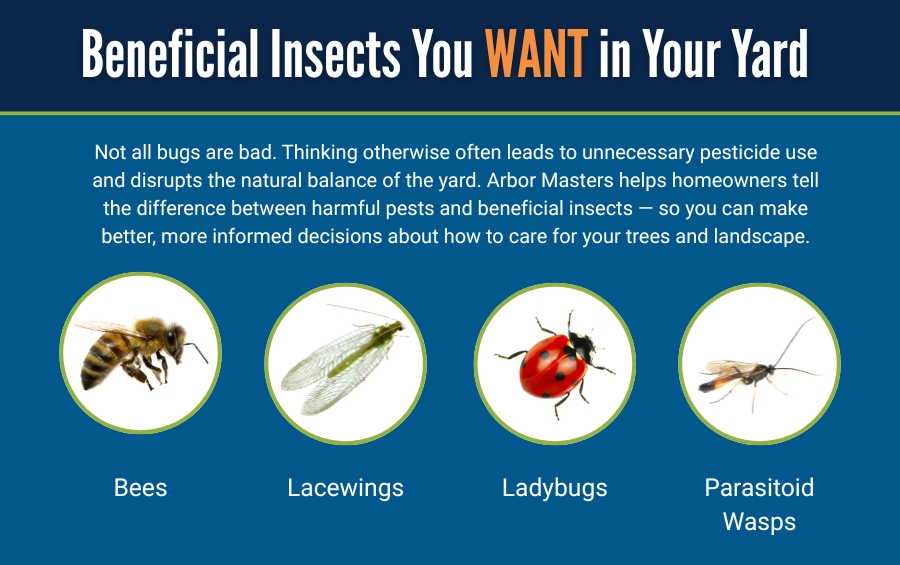
We Help Homeowners Understand Beneficial Insects
Education is a key part of what we do at Arbor Masters. While our primary goal is to treat trees for damaging pests, we also take the time to help homeowners understand the important role beneficial insects play in a healthy landscape.
Insects like bees, ladybugs, lacewings, and parasitoid wasps are nature’s built-in pest control – helping keep harmful populations in check without the need for harsh chemicals. Unfortunately, many people assume that all insects are a problem.
As Jacquelyn Palmer, Arbor Masters’ Plant Health Care Program Manager, puts it:
“Insects are not bad. There are many customers who think all bugs are bad, and we have to try to educate them because they’ve been taught to hate and fear them.”
That mindset can lead to unnecessary pesticide use and a breakdown in the natural balance of the yard. Our team helps customers tell the difference between common pests and the beneficial ones, so they can make informed, eco-friendly decisions about how to care for their trees and landscape.
FAQs About Saving the Bees While Caring for Trees
Are tree treatments safe for bees and other pollinators?
Not all treatments are safe for bees – some contain chemicals that can contaminate pollen and nectar. However, Arbor Masters uses reduced-risk treatments and precise application methods to minimize the risk to our pollinators.
What are the best pollinator-friendly alternatives to traditional pesticides?
Pollinator-friendly pest control includes systemic or targeted treatments, integrated pest management (IPM), and natural predators like ladybugs and parasitic wasps. Avoiding broad-spectrum sprays and treating only when necessary helps protect pollinators while managing harmful pests.
What trees or plants are most beneficial for bees?
Bees thrive in landscapes that offer a variety of flowering trees and plants throughout the growing season. Native species, like redbuds, serviceberries, dogwoods, and maples provide excellent forage. Avoid overly manicured yards and opt for diverse, pesticide free plantings that bloom in different seasons to support the bees in different seasons.
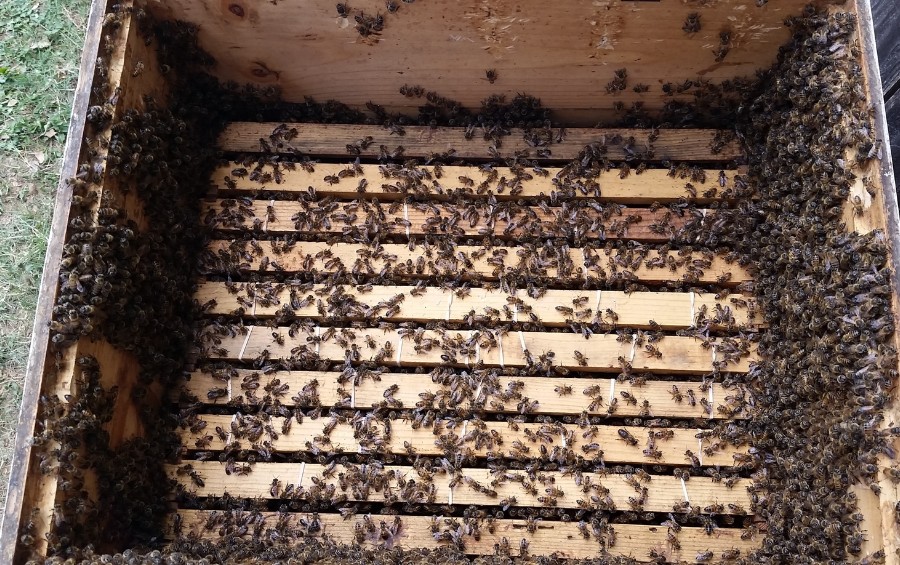
Bees safely removed from a fallen tree are secured in a transport box, ready to be relocated to a new hive – protecting both pollinators and property.
Protect Your Trees – and the Bees – with Arbor Masters
The decline in bee populations is alarming, but it’s not irreversible – especially when homeowners and professionals work together to make smarter, more environmentally conscious choices.
At Arbor Masters, we work to protect pollinators while caring for trees. We use “reduced-risk” insecticides and focus on improving tree health to help them become more resistant to pests and diseases. The healthier the tree, the fewer pest pressures it faces. By taking this holistic approach, we reduce the need for harsh chemicals and support the overall health of your landscape.
Call Arbor Masters today at 319-359-6135 to experience tree care that’s as good for your trees as it is for the planet.
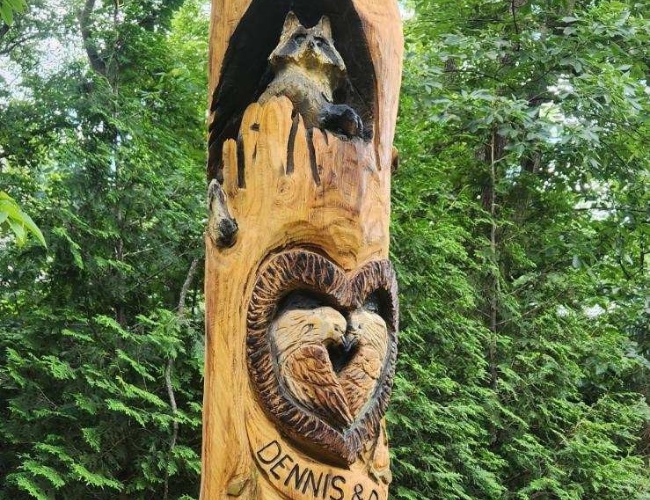
Get the latest local news, tree care tips, special offers, and company updates directly to your inbox! It's easy to subscribe and there's no spam - we promise.
"*" indicates required fields

